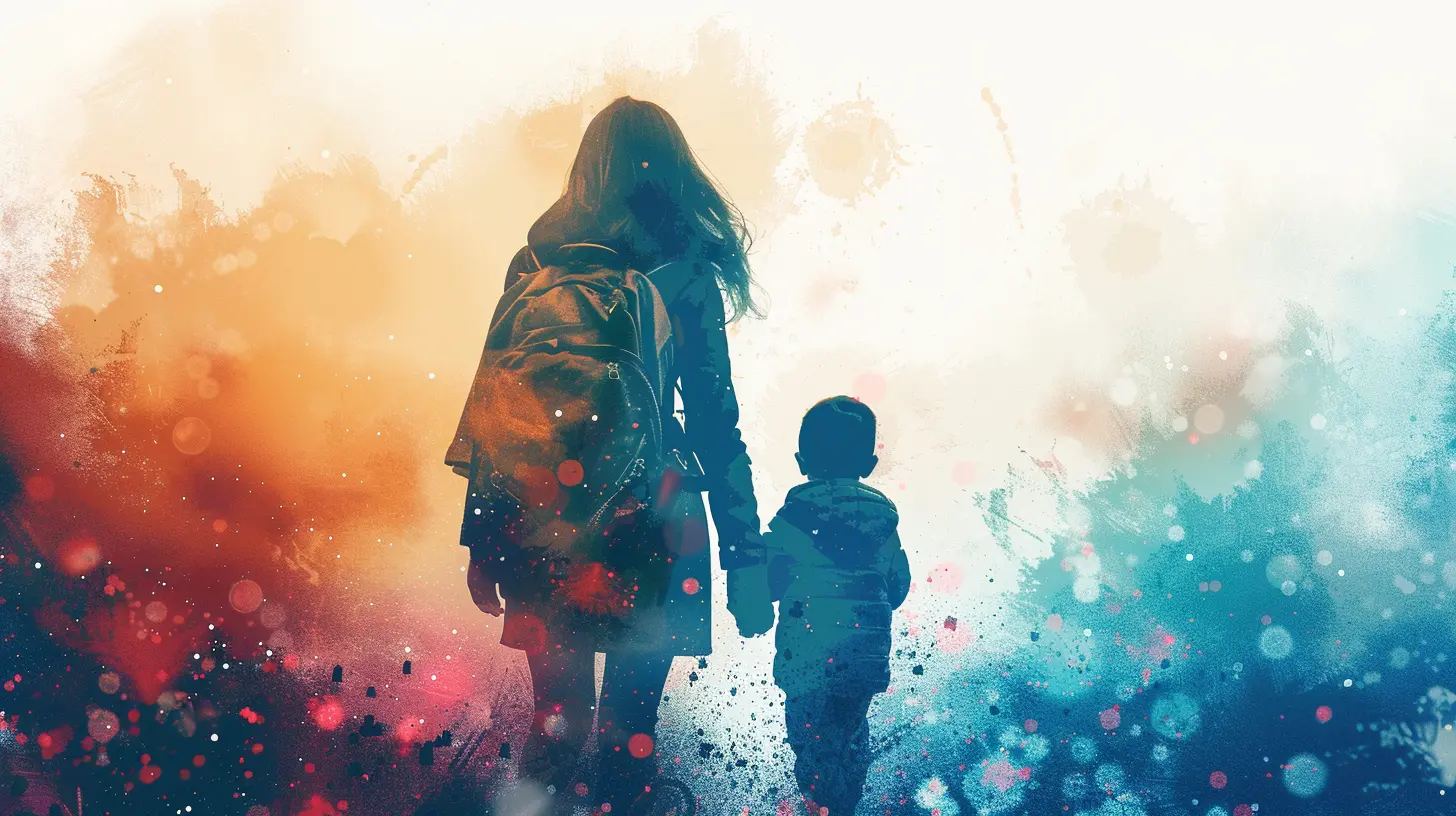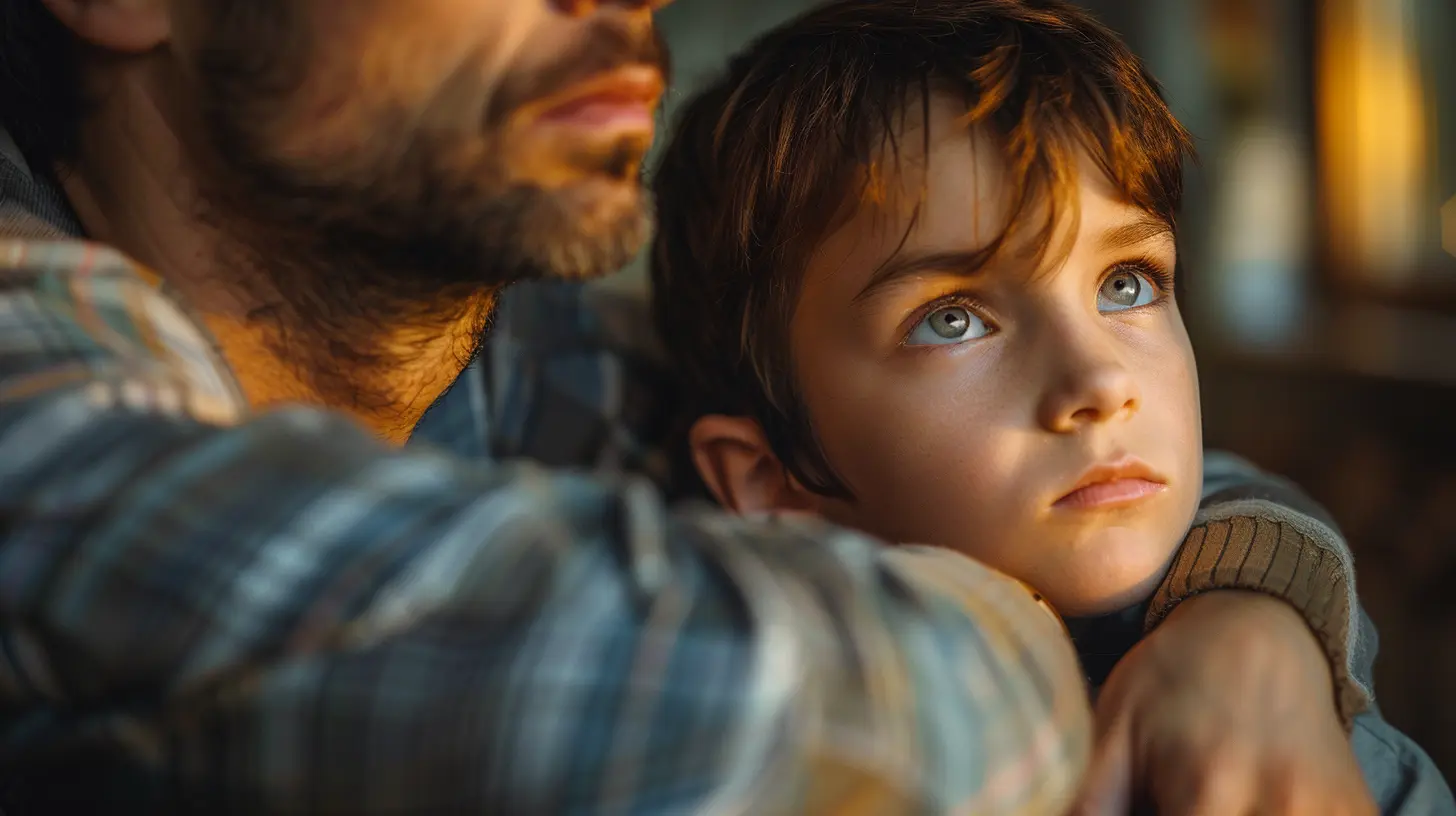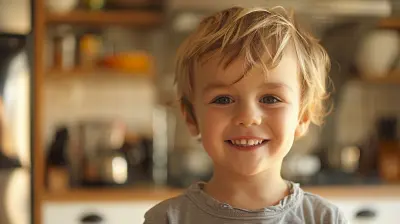How Social Media Impacts Children’s Feelings About Divorce
25 September 2025
Divorce is tough on everyone, but for kids, it can be an emotional rollercoaster. One moment, they're holding it together, and the next, a random social media post sends them spiraling. In today’s digital age, social media plays a massive role in shaping how kids process their parents' separation. But is it helping or hurting them?
Let’s dive into the impact social media has on children's emotions during and after a divorce – the good, the bad, and the downright tricky. 
The Emotional Minefield of Social Media
Social media is like a double-edged sword. On one side, it connects kids with friends, providing comfort and distraction. On the flip side, it can amplify feelings of sadness, jealousy, and confusion.Think about it – a child scrolling through their feed sees pictures of friends enjoying family vacations, parents posting "happy couple" anniversary shoutouts, or even their own parents moving on with new partners. Ouch. That stings.
Even if parents try to minimize conflict, social media can inadvertently put kids in the middle of emotionally charged situations. 
The Comparison Trap – Why Does Everyone Else’s Family Seem Perfect?
Social media is a highlight reel of everyone’s best moments. No one posts about the argument over who forgot to take out the trash or the pile of dishes sitting in the sink.For kids whose families are going through a divorce, scrolling through posts of “perfect families” can make them feel like their world is falling apart while everyone else’s stays picture-perfect.
They might start wondering:
- “Why can’t my family be like that?”
- “Am I the only one dealing with this?”
- “Did I do something wrong?”
These thoughts can fuel feelings of isolation, sadness, and even shame. 
When Social Media Becomes an Emotional Escape
On the flip side, social media can sometimes provide a much-needed escape. With just a swipe, kids can tune out their worries and dive into memes, music, and funny videos. It’s a temporary break from reality, and honestly, who doesn’t need that sometimes?Platforms like TikTok and Instagram even have communities where kids share their experiences about divorce. This can create a sense of solidarity—knowing they're not alone. They might come across relatable posts, videos with advice, or even positive messages from others who've been in their shoes.
But, as with anything, moderation is key. If social media becomes the only way a child processes emotions, it can create an unhealthy habit of avoidance rather than real healing. 
The Risk of Overexposure to Parental Drama
One of the biggest dangers of social media during a divorce is oversharing—not from the kids, but from the parents.Imagine a child scrolling through Facebook and suddenly seeing a post from Mom venting about Dad. Or spotting a vague but clearly pointed quote about "trust being broken." Yikes.
Public divorce drama puts kids in a tough spot. They shouldn’t have to pick sides, and they definitely shouldn’t be processing their family’s breakdown through passive-aggressive Instagram stories.
When parents engage in this kind of behavior, kids may feel:
- Embarrassed that their personal life is on display
- Pressured to take sides
- Angry or resentful about being dragged into adult conflicts
As tough as it sounds, parents need to keep their grievances off the internet and prioritize their child’s well-being over a moment of online venting.
Cyberbullying and the Divorce Stigma
Let’s not sugarcoat it—kids can be cruel. While social media can be a source of comfort, it can also be a breeding ground for bullying.Some children of divorced parents experience teasing or mean comments from peers. Things like:
- “No wonder your dad left.”
- “Your family is broken.”
- “That’s why your parents don’t love each other.”
These harsh words, amplified by the internet, can cut deep. Cyberbullying can make an already difficult time even harder, leading to anxiety, low self-esteem, and even depression.
Parents should stay alert to changes in their child’s behavior and offer a safe space to talk about any social media troubles they may be facing.
How Social Media Can Help Kids Cope
Okay, so we’ve talked about the downsides of social media during a divorce, but it’s not all bad! In fact, when used wisely, social media can actually help kids navigate their emotions.Here’s how:
1. Finding Support Groups
There are online groups for everything—including divorce support for kids and teens. These communities provide a safe space to share feelings, ask questions, and find comfort from those who truly understand.2. Expressing Emotions Through Creativity
Social media allows kids to express themselves through art, music, writing, or even creating videos about their emotions. Sometimes, putting feelings into creative outlets can be incredibly therapeutic.3. Access to Positive Influences
Encouraging kids to follow uplifting accounts, mental health advocates, and positive influencers can help counteract negative feelings. A daily dose of encouragement can make a bigger difference than we realize.4. Keeping In Touch with Loved Ones
Divorce sometimes means living in two different households. Social media and messaging apps help kids stay connected with family members, whether that’s a parent, grandparents, or siblings who don’t live under the same roof.What Parents Can Do to Help
If you’re a parent going through a divorce, social media isn’t something you can just wish away. But you can guide your child through it in a healthy way. Here’s how:1. Talk About It
Have open conversations about social media and how it might affect their feelings. Let them know it’s okay to feel sad, confused, or even jealous when they see certain posts.2. Set Boundaries
Encourage healthy social media habits. That might mean limiting screen time, setting privacy controls, or just making sure they’re following positive accounts.3. Monitor Without Spying
There’s a fine line between keeping an eye on their online activity and invading their privacy. Instead of snooping, foster trust so they feel comfortable coming to you if something bothers them.4. Be Mindful of What You Post
If you co-parent, avoid posting anything negative about your ex. Kids don’t need to see their parents fighting through Facebook statuses. Keep personal matters private and focus on supporting your child.5. Encourage Real-Life Connections
Make sure social media isn’t their only outlet. Encourage face-to-face time with friends, family gatherings, or even therapy if needed. A strong real-world support system is just as important—if not more—than an online one.Final Thoughts
Social media is here to stay, and while it has its drawbacks, it also has the potential to help children navigate their emotions during a divorce. The key is balance—knowing when to take a step back and when to lean into the support it can provide.As parents, the best thing we can do is guide our kids through this digital age with love, understanding, and a little bit of wisdom. Because at the end of the day, nothing on social media can replace the power of a heartfelt conversation, a warm hug, or simply being there for them when they need it most.
all images in this post were generated using AI tools
Category:
Divorce And KidsAuthor:

Tara Henson
Discussion
rate this article
1 comments
Annette Cross
This article highlights the profound impact social media has on children's perceptions of divorce, often amplifying feelings of loneliness and insecurity. The constant comparison with seemingly perfect family portrayals can exacerbate emotional distress. Parents must be mindful of their children's online interactions and provide supportive guidance during such challenging times.
October 12, 2025 at 4:10 AM

Tara Henson
Thank you for your insightful comment! It's crucial for parents to understand the influence of social media on their children, especially during difficult times like divorce. Open communication and support can help mitigate its effects.


